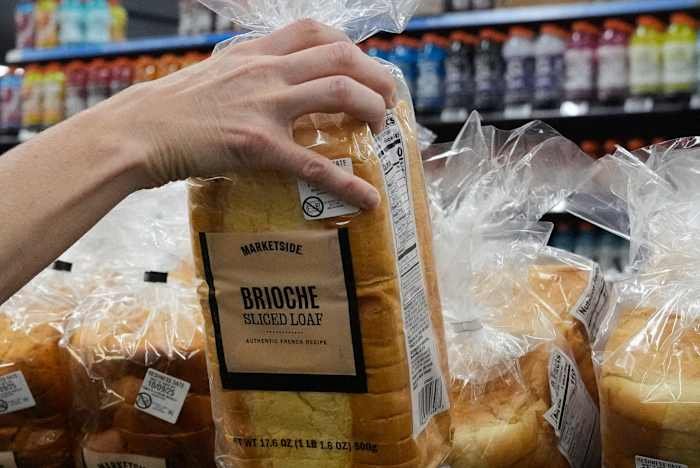Walmart, the nation’s largest retailer, has announced a major change to its store-brand food products. By January 2027, the company plans to eliminate artificial colors, synthetic dyes, and over 30 other additives from its private-label foods sold in the United States. This move is set to impact millions of customers, including many right here in Orlando. As families around Central Florida look for healthier options, this decision could reshape grocery shopping habits and set a new standard for food retailers nationwide.
Walmart’s Commitment to Cleaner Ingredients
Walmart’s private-label foods, including well-known brands like Great Value and Marketside, are staples in Orlando households. The company’s new pledge specifically targets ingredients that have sparked health concerns among consumers, such as artificial dyes, preservatives, and certain sweeteners. By reformulating these products, Walmart aims to address growing demand for cleaner, more transparent food options.
According to Walmart, the list of banned additives will include synthetic colors (like Red 40 and Yellow 5), high-fructose corn syrup, and some preservatives that have been linked to health issues. These changes will be made across thousands of items, ranging from canned vegetables to snacks and frozen meals. For Orlando residents, who often rely on affordable store brands for their weekly groceries, this means more natural choices without a premium price tag.
Why the Change Matters to Orlando Shoppers
The shift toward cleaner ingredients isn’t just a national trend—it’s especially relevant in Orlando. Central Florida’s diverse and growing population includes many families focused on nutrition, as well as individuals with food sensitivities and allergies. Local parents, in particular, have voiced concerns about the impact of synthetic dyes and additives on children’s health and behavior.
Walmart’s updated policies could make it easier for Orlandoans to find healthier options right in their neighborhood stores, from Walmart Supercenters on Colonial Drive to Neighborhood Markets in Winter Park. As the city continues to prioritize public health and wellness, this announcement is likely to be welcomed by both consumers and local health advocates.
Impact on the Food Industry and Other Retailers
Walmart’s decision is expected to have ripple effects throughout the food industry. As the largest grocery retailer in the U.S., Walmart’s standards often set the pace for other companies. If Walmart succeeds in reformulating its store-brand foods, competitors may follow suit to stay relevant to health-conscious consumers.
For Orlando’s local economy, this could mean shifts in supply chains and even opportunities for regional producers who already meet cleaner ingredient standards. Food manufacturers supplying Walmart will need to adapt quickly, potentially creating more demand for natural coloring agents and preservatives derived from plants or minerals. Meanwhile, Orlando’s smaller grocers and specialty health food stores may face new competition as mainstream retailers like Walmart raise the bar on ingredient quality.
What Shoppers Can Expect in the Coming Years
Walmart’s timeline gives the company roughly three years to complete the transition. During this period, Orlando shoppers may begin to notice subtle changes in packaging and ingredient lists on their favorite store-brand products. The company has stated that it will also provide clearer labeling to help customers make informed choices.
Some challenges remain, such as sourcing affordable alternatives to synthetic additives and ensuring that taste and quality are not compromised. However, Walmart has a track record of leveraging its scale to drive industry-wide change. In the past, its initiatives around cage-free eggs and antibiotic-free meats have influenced consumer expectations and spurred similar action from other retailers.
For families in Orlando, these changes could make it easier to shop with confidence, knowing that the foods they bring home meet higher health standards—without stretching their grocery budget. This is especially important as inflation and food insecurity remain concerns for many local households.
Community Reactions and Local Health Advocacy
Initial reactions from Orlando’s health and wellness community have been positive. Local dietitians and pediatricians often counsel parents on the impact of artificial additives, and many say they welcome Walmart’s leadership on the issue. Additionally, advocacy groups such as the Florida Consumer Action Network have long called for more transparency and safety in the food supply.
Some shoppers, however, may be skeptical about how quickly and thoroughly these changes will be implemented. Others may worry about potential cost increases or changes in product taste. Walmart has assured customers that it intends to keep its private-label foods affordable and tasty, while working closely with suppliers to maintain consistency.
As the transition unfolds, Orlando residents will have a front-row seat to how a national policy shift plays out at the community level. The city’s mix of young families, retirees, and international visitors means that Walmart’s changes could touch a wide range of dietary needs and preferences.
Conclusion: A Step Forward for Healthier Eating in Orlando
Walmart’s plan to remove artificial colors and other controversial additives from its store-brand foods by 2027 represents a significant step toward a healthier food landscape—both nationally and here in Orlando. As the company works to make its products safer and more natural, local shoppers stand to benefit from better options at affordable prices. Whether you shop at Walmart regularly or are simply interested in the future of food in Orlando, this development is worth watching.
What do you think about Walmart’s new policy on food additives? Will it change how you shop for groceries in Orlando? Share your thoughts in the comments below!
















